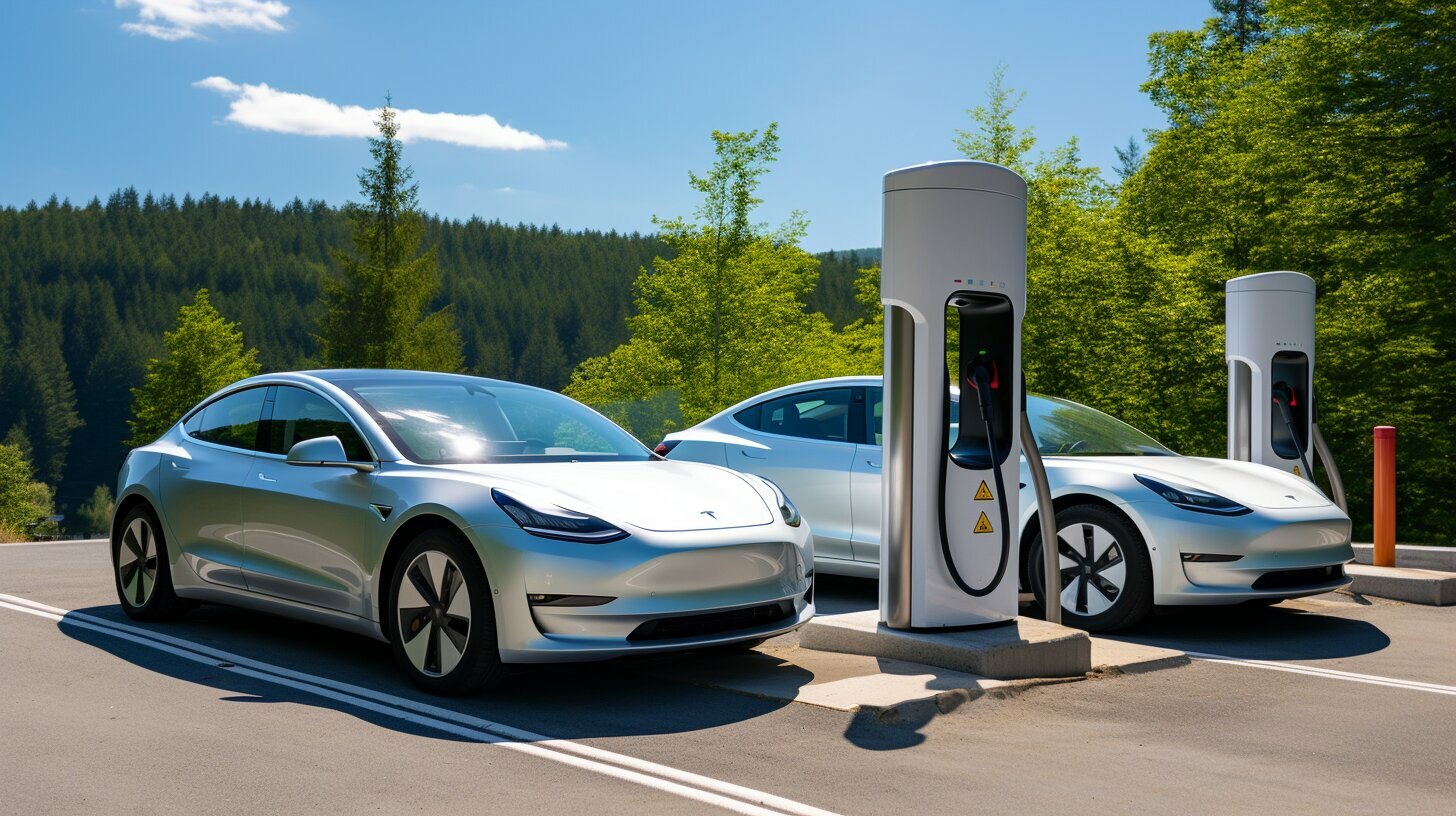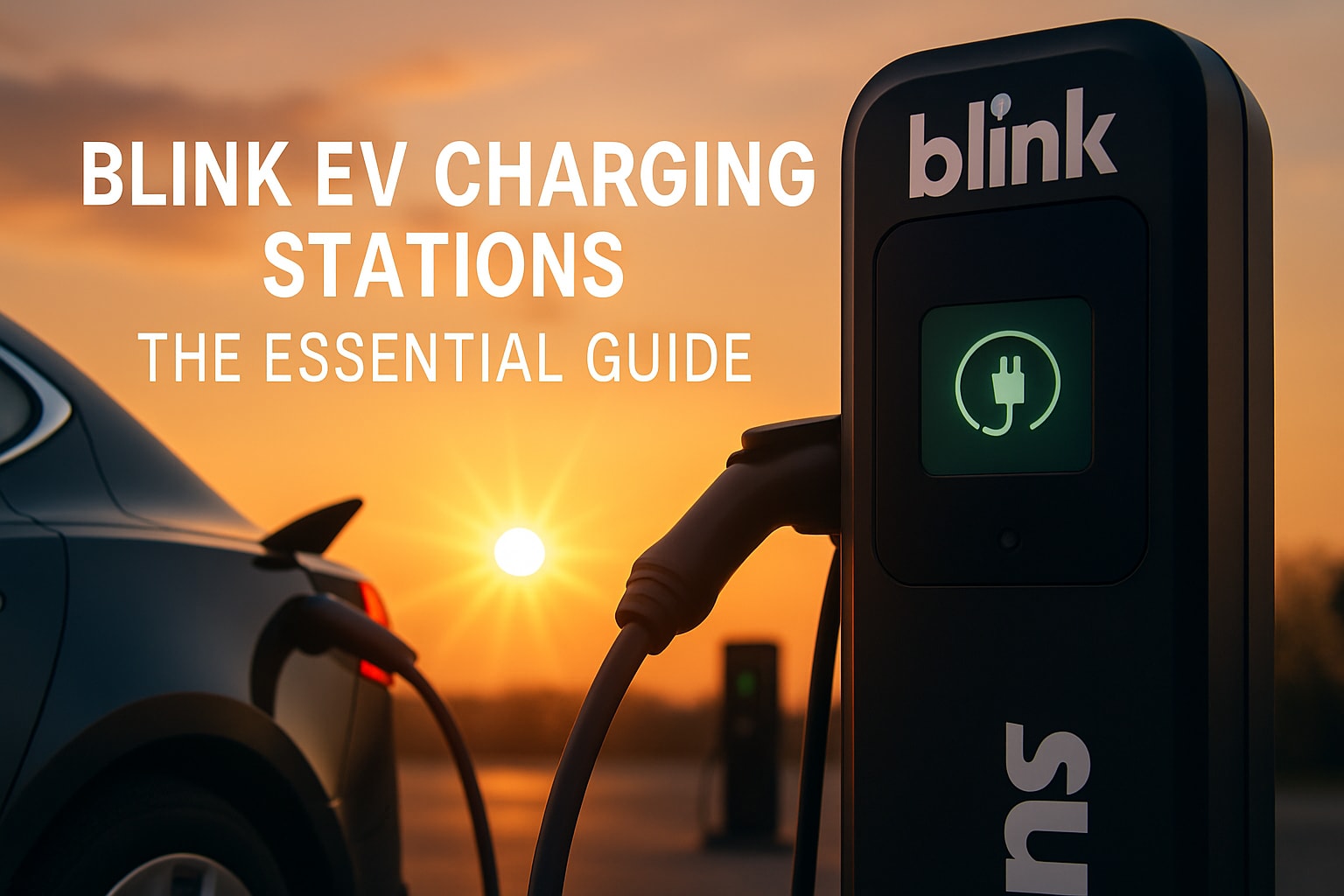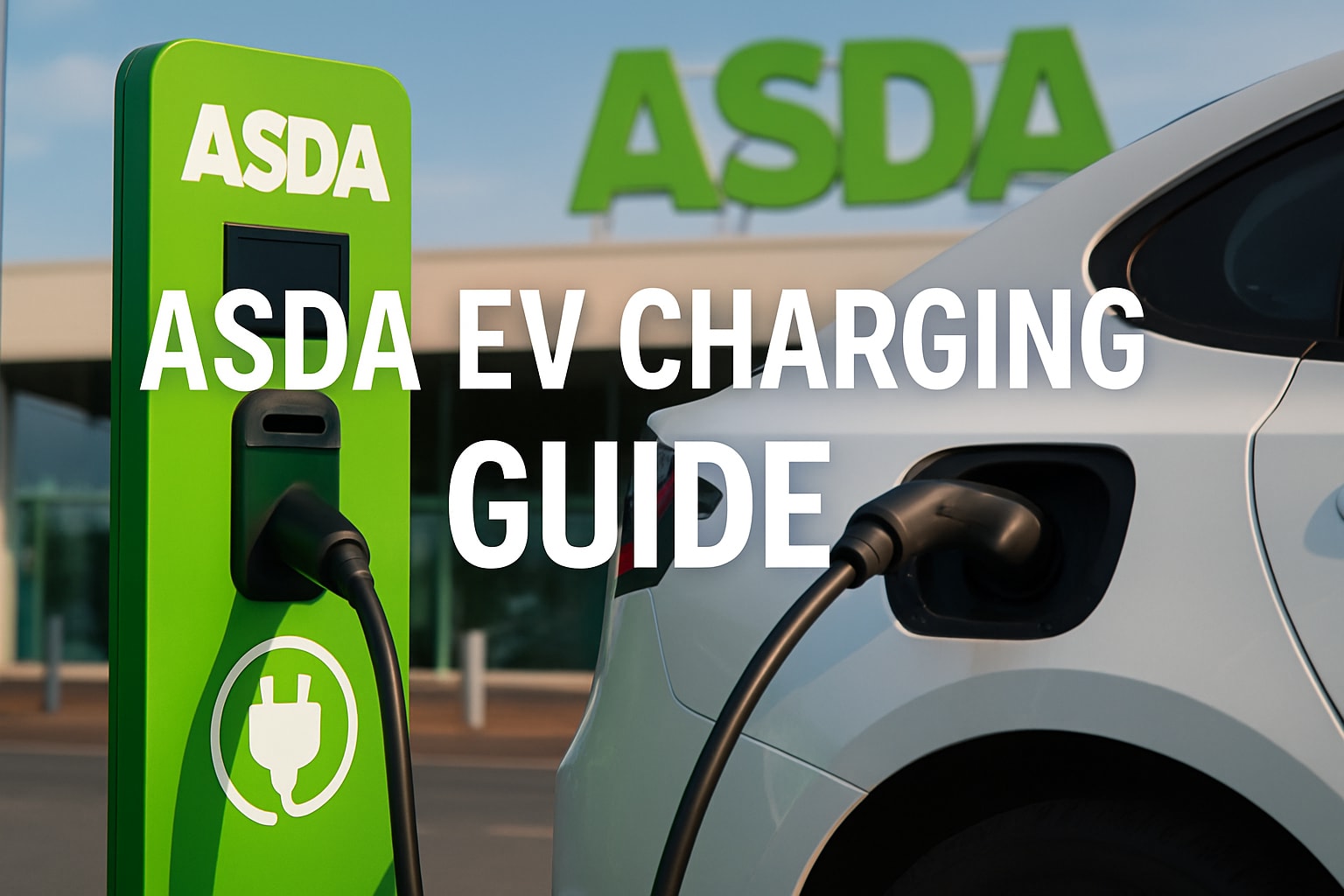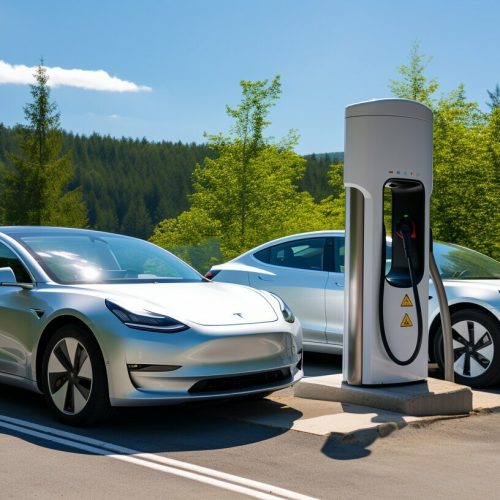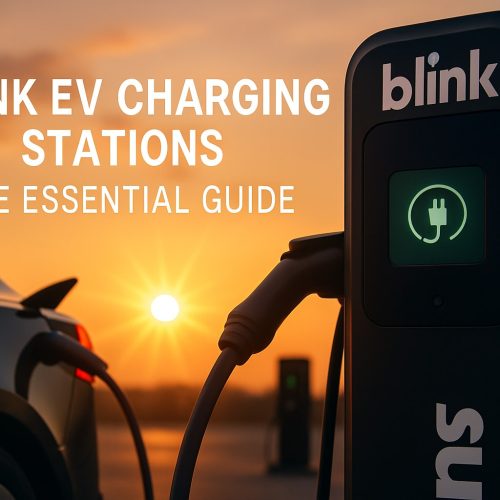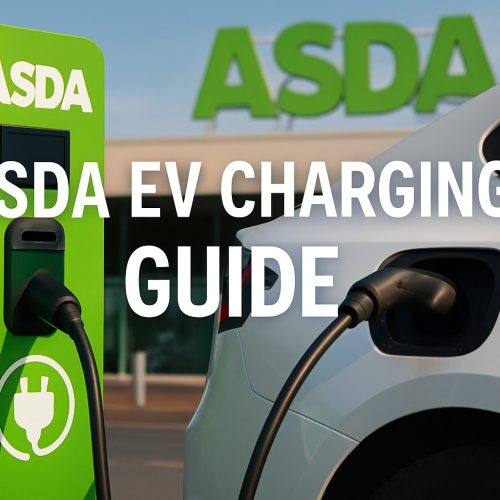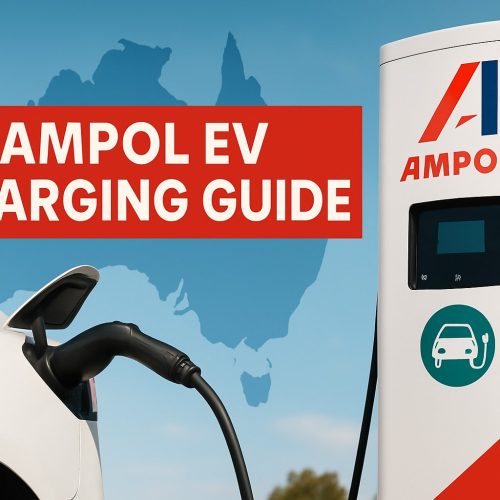Electric vehicles have gained popularity in recent years, and with that comes the need for efficient and convenient charging solutions. As the demand for electric vehicles continues to grow, it’s important to understand the different types of electric vehicle chargers available on the market. By familiarizing yourself with these options, you can streamline your charging experience and ensure that your electric vehicle is always ready to hit the road.
Key Takeaways:
- Electric vehicle chargers come in three levels: Level 1, Level 2, and DC Fast Charging.
- Level 1 chargers use a standard 120-volt outlet and are best for short-distance driving.
- Level 2 chargers require a 240-volt outlet and are ideal for daily use at home or workplaces.
- DC Fast Charging is the fastest option, charging up to 80% in just 30 minutes, but requires specialized equipment and can be more expensive.
- When choosing an electric vehicle charger, consider factors such as cost, installation requirements, and the location where it will be installed.
Electric Vehicle Charging Options: An Overview
Electric vehicle owners have several options when it comes to charging their vehicles, each with its own set of advantages and considerations. Understanding these options will help you make an informed decision about which charging method is best for your needs. Let’s take a closer look at the three main types of electric vehicle chargers available:
Level 1 Electric Vehicle Chargers
Level 1 chargers are the simplest and most basic type of electric vehicle chargers. They use a standard 120-volt outlet, which can be found in most homes. While Level 1 charging is the slowest option, taking up to 20 hours to fully charge a vehicle, it is often sufficient for daily commuting and short-distance driving. These chargers are best suited for those who primarily charge their vehicles at home. The table below summarizes the key features of Level 1 chargers:
| Charger Type | Charging Time | Use Case |
|---|---|---|
| Level 1 | Up to 20 hours | Daily commuting, short-distance driving |
Level 2 Electric Vehicle Chargers
Level 2 chargers offer faster charging times compared to Level 1 chargers. They require a 240-volt outlet and can charge a vehicle in 2 to 10 hours, depending on the vehicle’s battery capacity. Level 2 chargers are ideal for daily use and can be installed at home or in workplaces, providing a convenient charging solution for those who need to top up their vehicles regularly. Here is a summary of Level 2 chargers:
| Charger Type | Charging Time | Use Case |
|---|---|---|
| Level 2 | 2 to 10 hours | Daily use, workplace charging |
DC Fast Charging: The Fastest Option
DC Fast Charging, also known as Level 3 charging, is the fastest option available for electric vehicle owners. These chargers use direct current (DC) and can charge a vehicle up to 80% in just 30 minutes. DC Fast Charging is commonly found at public charging stations and is ideal for long-distance travel or when a quick charge is needed. However, it’s important to note that DC Fast Charging requires specialized equipment and can be more expensive to install and use compared to Level 1 or Level 2 chargers. Here are the key details for DC Fast Charging:
| Charger Type | Charging Time | Use Case |
|---|---|---|
| DC Fast Charging | Up to 80% in 30 minutes | Long-distance travel, quick charging |
Now that you have an overview of the different electric vehicle charging options, you can consider factors such as cost, installation requirements, and location to determine the best charging solution for your needs. Remember, choosing the right charger will ensure a seamless charging experience for your electric vehicle.
Level 1 Electric Vehicle Chargers
Level 1 electric vehicle chargers are the most accessible and affordable charging option for electric vehicle owners, making them a popular choice for home charging. These chargers use a standard 120-volt outlet and are commonly found in households across the country. While they are the slowest option, taking up to 20 hours to fully charge a vehicle, they are often sufficient for daily commuting and short-distance driving.
Using a Level 1 charger is as simple as plugging it into a regular household outlet. This convenience, coupled with the lower cost compared to other charger types, makes Level 1 chargers a practical choice for many electric vehicle owners.
It’s important to note that Level 1 chargers may not be suitable for everyone. If you have a longer daily commute or require quick charging times, you may want to consider alternative options such as Level 2 chargers or DC Fast Charging. Additionally, if you plan on regularly taking long trips, Level 1 chargers may not provide the necessary charging speed to meet your needs.
Overall, Level 1 chargers are a great entry-level option for electric vehicle owners, offering convenience and affordability for home charging. However, it’s important to assess your charging needs and consider factors such as daily travel distance and charging speed before making a decision.
Advantages of Level 1 Electric Vehicle Chargers
- Accessible: Level 1 chargers can be plugged into a standard 120-volt household outlet, making them convenient for home charging.
- Affordable: Compared to Level 2 chargers or DC Fast Charging, Level 1 chargers are more budget-friendly.
- Wide Compatibility: Level 1 chargers are compatible with most electric vehicles on the market, making them a versatile option.
Considerations for Level 1 Electric Vehicle Chargers
- Slow Charging Speed: Level 1 chargers take longer to fully charge a vehicle compared to other charger types.
- Limited Range: If you have a longer daily commute or frequently travel long distances, Level 1 chargers may not be suitable.
- Dependent on Home Electrical Infrastructure: Ensure that your home’s electrical infrastructure can handle the charging load of a Level 1 charger.
Considering these advantages and considerations, Level 1 electric vehicle chargers can be a suitable choice for many electric vehicle owners, especially for those looking for a cost-effective and convenient solution for home charging.
| Charger Type | Charging Speed | Outlet Requirement | Best For |
|---|---|---|---|
| Level 1 | Up to 20 hours for a full charge | Standard 120-volt outlet | Daily commuting and short-distance driving |
| Level 2 | 2 to 10 hours for a full charge | 240-volt outlet | Daily use, home or workplace charging |
| DC Fast Charging | Up to 80% charge in 30 minutes | Specialized equipment required | Long-distance travel, quick charging needs |
Level 2 Electric Vehicle Chargers
Level 2 electric vehicle chargers provide a significant upgrade in charging speed and are suitable for individuals who require faster charging times. These chargers require a 240-volt outlet and can charge a vehicle in 2 to 10 hours, depending on the vehicle’s battery capacity.
Unlike Level 1 chargers, which are commonly used at home for daily commuting or short-distance driving, Level 2 chargers offer a more efficient and convenient solution for regular charging needs. Whether installed at home or in workplaces, Level 2 chargers provide a reliable and faster charging experience.
One of the advantages of Level 2 chargers is their versatility. They can be used to charge a wide range of electric vehicles, making them a practical choice for EV owners with different makes and models. Level 2 chargers also offer compatibility with various charging standards, ensuring that users can take advantage of the latest charging technologies.
Comparison of Level 1 and Level 2 Chargers
| Charger Type | Charging Time | Outlet Voltage | Best For |
|---|---|---|---|
| Level 1 | Up to 20 hours | 120 volts | Short-distance driving, daily commuting |
| Level 2 | 2 to 10 hours | 240 volts | Daily use, faster charging needs |
When considering a Level 2 charger, it’s important to assess your specific charging requirements. Factors such as your daily commute distance, charging frequency, and available infrastructure will influence the decision-making process. Additionally, installation costs and requirements should be taken into account, as Level 2 chargers may require professional electrical work and potential upgrades to your electrical system.
In summary, Level 2 electric vehicle chargers offer faster charging times and greater convenience compared to Level 1 chargers. They are suitable for individuals who require faster charging speeds and a more efficient charging experience. By considering your charging needs, infrastructure, and installation requirements, you can select the most appropriate Level 2 charger for your electric vehicle.
DC Fast Charging: The Fastest Option
When it comes to ultra-fast charging, DC Fast Charging is the go-to option for electric vehicle owners who need to charge their vehicles quickly and efficiently. These chargers use direct current (DC) and can charge a vehicle up to 80% in just 30 minutes. This makes DC Fast Charging the ideal choice for long-distance travel or when you’re in a hurry and need a quick charge. However, it is important to note that DC Fast Charging requires specialized equipment and can be more expensive to install and use compared to Level 1 or Level 2 chargers.
DC Fast Charging stations are commonly found at public charging stations, making them easily accessible for EV owners on the go. With the ability to charge up to 80% in just 30 minutes, drivers can take a quick break or grab a bite to eat while their vehicle charges. This makes DC Fast Charging a convenient option for those on road trips or who have a busy schedule and can’t afford to wait long hours for their vehicle to charge.
Despite the advantages of DC Fast Charging, it is important to consider the cost and potential limitations. These chargers typically require higher voltage and specialized equipment, resulting in higher installation and operating costs. Additionally, not all electric vehicles are compatible with DC Fast Charging, so it’s crucial to check your vehicle’s specifications before using this type of charger.
| Charger Type | Charging Time | Usage |
|---|---|---|
| Level 1 | Up to 20 hours | Best for short-distance driving |
| Level 2 | 2 to 10 hours | Ideal for daily use |
| DC Fast Charging | Up to 80% in 30 minutes | Perfect for long-distance travel |
When considering the charging options for your electric vehicle, it’s important to weigh the benefits and limitations of each charger type. While DC Fast Charging offers unparalleled speed and convenience, it may not be the most cost-effective or practical option for everyone. Take into account the charging infrastructure in your area, your driving habits, and your budget to determine the most suitable charging solution for your needs.
Understanding EV Charging Connectors
EV charging connectors are an important consideration when it comes to selecting the right charger for your electric vehicle. These connectors serve as the interface between your vehicle and the charging station, allowing for the transfer of power. Different types of connectors are used for different charging levels and charger types, and understanding them is essential to ensure compatibility and a seamless charging experience.
One commonly used connector is the J1772 connector, which is predominantly used for Level 1 and Level 2 charging. This connector features a standard five-pin configuration and is compatible with most electric vehicles. Another popular connector is the CHAdeMO connector, primarily used for DC Fast Charging. This connector uses a unique design with multiple pins and is commonly found at public charging stations.
For high-power charging, the CCS (Combined Charging System) connector is widely used. This connector combines both AC and DC charging capabilities, allowing for faster charging times. The CCS connector is becoming increasingly common and is supported by many electric vehicle models.
When selecting an electric vehicle charger, it is crucial to ensure that the charging connector matches the connector type supported by your vehicle. Some chargers may come with multiple connectors to accommodate various vehicle models, while others may require an adapter for compatibility. It is always recommended to check the compatibility of the charging connector with your vehicle before making a purchase or using a charging station.
| Charging Level | Common Connector Types |
|---|---|
| Level 1 | J1772 |
| Level 2 | J1772, CHAdeMO, CCS |
| DC Fast Charging (Level 3) | CHAdeMO, CCS |
By understanding the different types of EV charging connectors and their compatibility with your vehicle, you can ensure a smooth and efficient charging experience. It is always recommended to consult your vehicle’s manual or contact the manufacturer for detailed information on the charging connector specifications and compatibility.
Exploring Different EV Charger Types
The availability of different EV charger types allows electric vehicle owners to choose the most convenient and efficient charging solution based on their needs. There are three main types of electric vehicle chargers: Level 1, Level 2, and DC Fast Charging. Each type offers its own charging speed and suitability for various driving scenarios.
Level 1 Electric Vehicle Chargers
Level 1 chargers are the most basic and widely accessible type of electric vehicle chargers. They use a standard 120-volt outlet, making them easy to install in any residential setting. While Level 1 chargers are the slowest option and can take up to 20 hours to fully charge a vehicle, they are well-suited for short-distance driving and daily commuting.
| Charger Type | Charging Time | Suitable for |
|---|---|---|
| Level 1 Chargers | Up to 20 hours | Short-distance driving, daily commuting |
Level 2 Electric Vehicle Chargers
Level 2 chargers offer faster charging times compared to Level 1 chargers. They require a 240-volt outlet and are commonly installed at home or in workplaces. Level 2 chargers can charge a vehicle in 2 to 10 hours, depending on the battery capacity. These chargers are ideal for daily use, providing a convenient charging solution for electric vehicle owners who need to top up their vehicles regularly.
| Charger Type | Charging Time | Suitable for |
|---|---|---|
| Level 2 Chargers | 2 to 10 hours | Daily use, regular charging |
DC Fast Charging
DC Fast Charging, also known as Level 3 charging, is the fastest option available for electric vehicle owners. These chargers use direct current and can charge a vehicle up to 80% in just 30 minutes. DC Fast Charging is commonly found at public charging stations and is ideal for long-distance travel or when a quick charge is needed. However, it’s important to note that DC Fast Charging requires specialized equipment and can be more expensive to install and use compared to Level 1 or Level 2 chargers.
| Charger Type | Charging Time | Suitable for |
|---|---|---|
| DC Fast Charging | Up to 80% in 30 minutes | Long-distance travel, quick charging |
When choosing an EV charger, it’s important to consider your charging needs and the specific requirements of each charger type. Factors such as cost, installation, and location should also be taken into account to ensure a seamless charging experience. Whether you opt for the convenience of Level 1 charging, the faster charging times of Level 2 chargers, or the speedy DC Fast Charging, there is a charger type available to meet your electric vehicle charging needs.
Benefits of Different EV Charger Types
The various types of EV chargers present different advantages that cater to the diverse needs of electric vehicle owners. Understanding these benefits can help you choose the right charger for your specific requirements. Here are the key advantages of each charger type:
- Level 1 Chargers: These chargers are the most affordable and easiest to install since they use a standard 120-volt outlet. They are ideal for daily commuting or short-distance driving. With Level 1 chargers, you can conveniently charge your vehicle overnight at home, without the need for any specialized installation. While they may be slower than other options, they offer a cost-effective solution for those with limited charging needs.
- Level 2 Chargers: With a higher charging capacity and faster charging times, Level 2 chargers are suitable for those who require regular and quicker charging. They require a 240-volt outlet and can be installed at home or in workplaces. Level 2 chargers offer the convenience of charging your vehicle in just a few hours, allowing you to start each day with a full charge. These chargers are also compatible with most electric vehicles on the market.
- DC Fast Charging: For those in need of rapid charging on long-distance trips or when time is limited, DC Fast Charging is the best option. These chargers can charge a vehicle up to 80% in just 30 minutes, providing a quick top-up. However, it’s important to note that DC Fast Charging requires specialized equipment and is typically available at public charging stations. While it may involve higher installation and usage costs, it offers unmatched convenience for charging your vehicle on the go.
By choosing the right EV charger type based on your specific needs, you can enjoy seamless charging experiences and ensure that your electric vehicle is always ready to hit the road.
Factors to Consider for EV Charger Selection
When choosing an EV charger, it’s important to evaluate various factors to find the best fit for your electric vehicle and charging requirements. The following are key considerations to keep in mind:
- Charging Speed: Determine how quickly you need to charge your vehicle. Level 1 chargers are the slowest, while Level 2 chargers offer faster charging times. If you frequently require quick charges, DC Fast Charging may be the most suitable option.
- Cost: Consider your budget for both the charger and its installation. Level 1 chargers are generally the most affordable, while Level 2 and DC Fast Charging options can be more expensive due to equipment and installation requirements.
- Location: Assess where you plan to install the charger. If you have a dedicated parking spot at your home or workplace, a Level 2 charger can provide convenient charging. For public charging stations, consider whether they offer DC Fast Charging for long-distance travel.
- Compatibility: Ensure that the charger you choose is compatible with your electric vehicle. Different vehicle models may require specific charging connectors or have limitations on charging speeds.
- Future-Proofing: Consider your future needs. If you plan to upgrade to a higher-capacity electric vehicle, it may be worth investing in a charger that can accommodate faster charging speeds.
Table 1: EV Charger Comparison
| Charger Type | Charging Speed | Cost | Installation |
|---|---|---|---|
| Level 1 Charger | Slow (Up to 20 hours for full charge) | Affordable | Standard 120-volt outlet |
| Level 2 Charger | Moderate (2 to 10 hours for full charge) | Higher cost compared to Level 1 | Requires a 240-volt outlet installation |
| DC Fast Charging | Fast (Up to 80% charge in 30 minutes) | Expensive | Specialized equipment and installation |
By carefully considering these factors, you can select an EV charger that aligns with your specific needs. Whether it’s the affordability of Level 1 chargers, the convenience of Level 2 chargers, or the speed of DC Fast Charging, finding the right charger will provide a seamless and efficient charging experience for your electric vehicle.
Understanding Cost and Installation Considerations
When considering an EV charger, it’s important to evaluate the costs and installation requirements to determine the feasibility of integrating a charging solution at your location. The cost of an EV charger can vary depending on the charger type and the existing electrical infrastructure of your location.
For Level 1 chargers, the cost is relatively low as they use a standard 120-volt outlet. These chargers are often included with the purchase of an electric vehicle or can be purchased separately for around $200 to $600. However, it’s important to keep in mind that Level 1 chargers have slower charging times compared to other options.
Level 2 chargers, on the other hand, require a 240-volt outlet and may have additional installation costs. The cost of a Level 2 charger can range from $500 to $2,000, depending on the brand and features. The installation cost can vary based on factors such as the distance from the electrical panel, the need for additional wiring or circuit upgrades, and any necessary permits.
| Charger Type | Cost | Installation Cost |
|---|---|---|
| Level 1 | $200 – $600 | N/A |
| Level 2 | $500 – $2,000 | Varies |
| DC Fast Charging | Varies | Varies |
DC Fast Charging, also known as Level 3 charging, typically has higher costs compared to Level 1 and Level 2 chargers. These chargers require specialized equipment and may require substantial electrical upgrades, making them more expensive to install. The cost of a DC Fast Charging station can range from $10,000 to $100,000 or more, depending on the power capacity and additional features. It’s important to consult with professionals and obtain quotes to determine the specific costs for your installation.
Overall, the cost and installation considerations for an EV charger depend on various factors. It’s essential to assess your budget, electrical infrastructure, and charging needs to make an informed decision. Consulting with an electrician or charging station installer can provide valuable insights and help ensure a smooth installation process.
Evaluating Location for EV Charger Installation
The location of your EV charger installation plays a crucial role in determining the accessibility and convenience of charging your electric vehicle. When choosing the right location, consider factors such as proximity to power sources, parking availability, and potential charging restrictions in your area.
One option for EV charger installation is at home, which offers the convenience of charging your vehicle overnight or whenever it is parked. This can be done in a garage, driveway, or dedicated charging station. Make sure that the location has access to a power source and that the electrical infrastructure can support the charger’s requirements.
If you do not have the option to install a charger at home, consider workplace charging. Many employers are now offering charging infrastructure for their employees, making it convenient to charge your electric vehicle during work hours. Check with your employer to see if this option is available and what the requirements are for using their charging stations.
| Location | Advantages | Considerations |
|---|---|---|
| Home | Convenient access to charging, especially overnight | Potential need for electrical upgrades, limited parking availability |
| Workplace | Charging during work hours, potential cost savings | Possible limitations on usage, availability may vary |
If you rely on public charging stations, evaluate their accessibility and availability in your area. Look for charging stations that are located near your regular routes or destinations. Some charging networks offer membership plans or payment options that provide access to a wide network of stations, making it more convenient to charge your electric vehicle while on the go.
Before finalizing the location for your EV charger installation, ensure that it complies with local regulations and any homeowner association guidelines, if applicable. It’s also a good idea to consult with a licensed electrician to assess the electrical capacity and feasibility of installing a charger at the desired location.
By carefully evaluating the location for your EV charger installation, you can ensure that you have easy access to charging your electric vehicle, whether it’s at home, work, or in public. Assess your charging needs and consider the advantages and considerations of each location option to make an informed decision that suits your lifestyle and enhances your EV charging experience.
Conclusion
With the variety of electric vehicle chargers available, it’s important to choose the one that aligns with your charging needs and preferences. Electric vehicle chargers come in three levels: Level 1, Level 2, and DC Fast Charging.
Level 1 chargers, also known as trickle chargers, use a standard 120-volt outlet and are best suited for short-distance driving. While they take up to 20 hours to fully charge a vehicle, they are often sufficient for daily commuting.
Level 2 chargers require a 240-volt outlet and offer faster charging times. They are ideal for daily use and can charge a vehicle in 2 to 10 hours, depending on the battery capacity. Level 2 chargers can be installed at home or in workplaces, providing a convenient charging solution.
For those in need of quick charging, DC Fast Charging, also known as Level 3 charging, is the fastest option. These chargers use direct current and can charge a vehicle up to 80% in just 30 minutes. However, they require specialized equipment and may be more expensive to install and use compared to Level 1 or Level 2 chargers.
When selecting an electric vehicle charger, consider factors such as cost, installation requirements, and location. By evaluating these factors and understanding the advantages and considerations of each charger type, you can choose a charger that enhances your EV charging experience and meets your specific needs.
FAQ
What are the different levels of electric vehicle chargers?
Electric vehicle chargers come in three levels: Level 1, Level 2, and DC Fast Charging.
How does a Level 1 charger work?
Level 1 chargers use a standard 120-volt outlet and can take up to 20 hours to fully charge a vehicle.
What is the charging time for a Level 2 charger?
Level 2 chargers require a 240-volt outlet and can charge a vehicle in 2 to 10 hours, depending on the battery capacity.
What is DC Fast Charging?
DC Fast Charging is the fastest option, charging a vehicle up to 80% in just 30 minutes.
Are Level 1 chargers suitable for long-distance travel?
Level 1 chargers are best for short-distance driving and are not ideal for long-distance travel.
Can Level 2 chargers be installed at home?
Yes, Level 2 chargers can be installed at home and provide a convenient charging solution for daily use.
Where can I find DC Fast Charging stations?
DC Fast Charging stations are commonly found at public charging stations and are suitable for long-distance travel.
What factors should I consider when choosing an EV charger?
Factors to consider include cost, installation requirements, charging speed, and location.
Are Level 1 chargers more affordable than Level 2 chargers?
Level 1 chargers are generally more affordable than Level 2 chargers, but this can vary depending on the brand and features.
How do I ensure compatibility between my vehicle and the charging station?
Understanding the different EV charging connectors will help ensure compatibility between your vehicle and the charging station.
What are the benefits of using different types of EV chargers?
Each type of EV charger offers its own benefits, such as cost savings, convenience, and charging speed.
How should I evaluate the location for EV charger installation?
When evaluating the location for EV charger installation, consider factors such as accessibility and convenience.
Is it necessary to hire professionals for EV charger installation?
For Level 1 and Level 2 chargers, installation can often be done by the user. However, for DC Fast Charging stations, professional installation is typically required.
